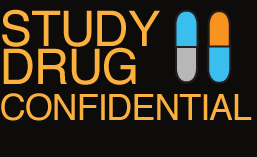by Daniel Hallen
It’s eight hours of solid concentration in one little, easy-to-swallow capsule. It’s behind the achievements of students at elite-level universities across Canada, the United States, and elsewhere. It’s a class of drug that everyone is using, and almost no one is talking about. Until now.
Canada is the number one importer in the world of the stimulants methylphenidate and dexamphetamine (Canada imported 53% of the global supply of dexamphetamine and 16% of the supply of methylphenidate in 2010).*
These drugs, usually prescribed to treat attention deficit-hyperactivity disorder, are used off-label by healthy students. According to students interviewed, up to 70% of of their peers are using these drugs on a regular basis to boost academic performance.
For months, usually under cover of darkness, I met with students to discuss a topic they felt needed to be discussed: “Cognitive enhancement” drugs or study drugs.
This is a story examining why students decide to use (or not use) these drugs.
It’s a story examining why a student with ADHD deals his prescription away.
It’s a story about what institutions like McGill are doing (and not doing) to level the academic playing field for everyone.
ETHICAL DILEMMAS
The stories below feature personal accounts of current students or recent graduates from McGill University. They are not meant to represent the views of all students.
“EVERYONE HERE IS AN OVERACHIEVER.” |
As a big fish in a sea of big fish, the crunch to compete puts students in tight spots.
HEALTH RISKS VS. POTENTIAL BENEFITS |
Sudden death, addiction, insomnia, and dry mouth, are some potential side-effects in a drug where the benefit for healthy people may be “all in the mind.”
AN UNFAIR ADVANTAGE ? |
If steroid use tore apart professional baseball, what’s acceptable in professional studying? How far is too far?
NOW ENTERING YOUR ADDERALL STATE |
Pop a pill, get in the zone, the work almost does itself. But, then who really did the work?
THE SUPPLY CHAIN
SUPPLY & DEMAND |
The decision to give away your drugs can be as complicated as the pressures to take them. A student with ADHD shares his story.
A BALANCING ACT: POLICING AND EDUCATING |
Combatting cheating and plagiarism? All in a day’s work for administrators at institutions of higher learning. Regulating performance enhancing study drugs? A minefield with no clear path out.
PREVENTIVE TWEETS – PILOTING AN OUTREACH STRATEGY |
What do you get when you stick two computer programmers in a room with a bioethics doctoral student and no beer? Hopefully, a social media platform to inform cramming students about the risks of study drugs!
THE STUDENTS
The following students all appeared under condition of anonymity. Each has been given a pseudonym.

A third-year university student, involved in multiple extra-curricular activities, holds a part-time job, hopes to attend law school at the completion of her degree. She has used Adderall off-label she estimates about 40 times. Karen asked that, in addition to being shot in silhouette, we shoot her from behind to further limit the chances of her being identified.

A final-year university student in Arts, Peter took Adderall an average of once per week over 1.5 years, with his use concentrated mostly during exam periods and paper-writing seasons. He continues to use Adderall and plans to use it, as the need arises, into the future.

A master’s student in Science who hopes to attend medical school. Jon used Adderall as an undergraduate student multiple times over one exam period, and then one subsequent time, before deciding to give it up.
This thesis project fulfills part of the requirements for the Masters of Journalism from the University of British Columbia. My accompanying literature review can be found here.
